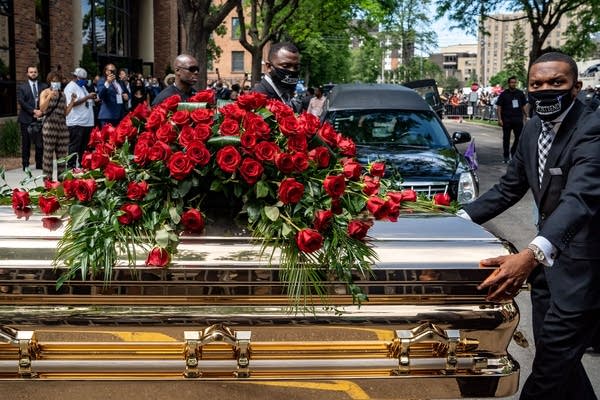Sharpton at George Floyd's Minneapolis memorial service: ‘Get your knee off our necks'

A casket holding George Floyd's body is taken from North Central University after his memorial service in Minneapolis on Thursday.
Evan Frost | MPR News
Go Deeper.
Create an account or log in to save stories.
Like this?
Thanks for liking this story! We have added it to a list of your favorite stories.


